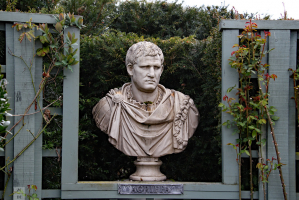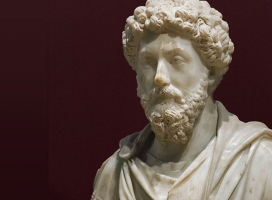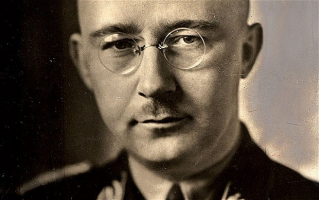Top 5 Interesting Facts about Marcus Garvey
Marcus Mosiah Garvey Sr. (17 August 1887 - 10 June 1940) was a Jamaican political leader, publisher, journalist, entrepreneur, and orator. He established the ... read more...Universal Negro Improvement Association and the African Communities League, through which he declared himself Provisional President of Africa. His ideals, as a black nationalist and Pan-Africanist, were known as Garveyism. Here are the 5 interesting facts about Marcus Garvey.
-
Garvey was a controversial figure. Some African diasporans saw him as a pretentious demagogue, and they were outraged by his association with white racists, aggressive rhetoric, and bigotry against mixed-race persons and Jews. Despite this, he was praised for instilling dignity and self-worth in Africans and the African diaspora in the face of pervasive poverty, prejudice, and colonialism. He is largely regarded as a national hero in Jamaica. His beliefs had a significant impact on movements such as Rastafari, the Nation of Islam, and the Black Power Movement.
One of the interesting facts about Marcus Garvey is that Garvey is regarded as a national hero in Jamaica. Jamaica's government bestowed the Order of the National Hero on him posthumously in 1969. Molefi Kete Asante, an African-American studies academic, put Garvey in his 2002 list of the 100 Greatest African Americans, while Ta-Nehisi Coates, an American writer, hailed Garvey as the "patron saint" of the black nationalist movement in 2008. Grant considered Garvey, along with Du Bois, to be the "Father of Pan-Africanism", while the Nigerian historian B. Steiner Ifekwe referred to Garvey as "one of the greatest Pan-African leaders of the time". People who feel Garvey was a "race patriot" have praised him, and many African Americans believe he pushed black people to develop a sense of self-respect and dignity. While in the United States, Garvey was commonly referred to as the "Negro Moses", meaning that, like the eponymous Old Testament figure, he would lead his people out of their oppressive living conditions.
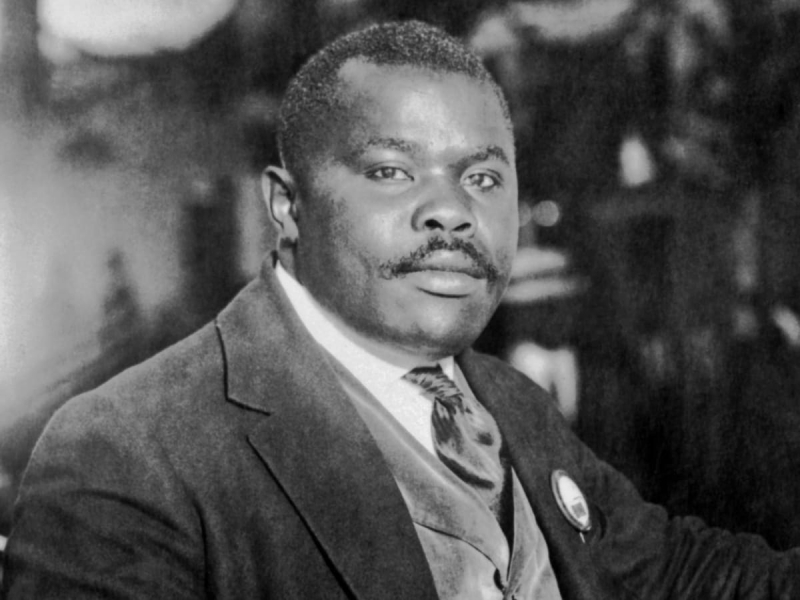
biography.com 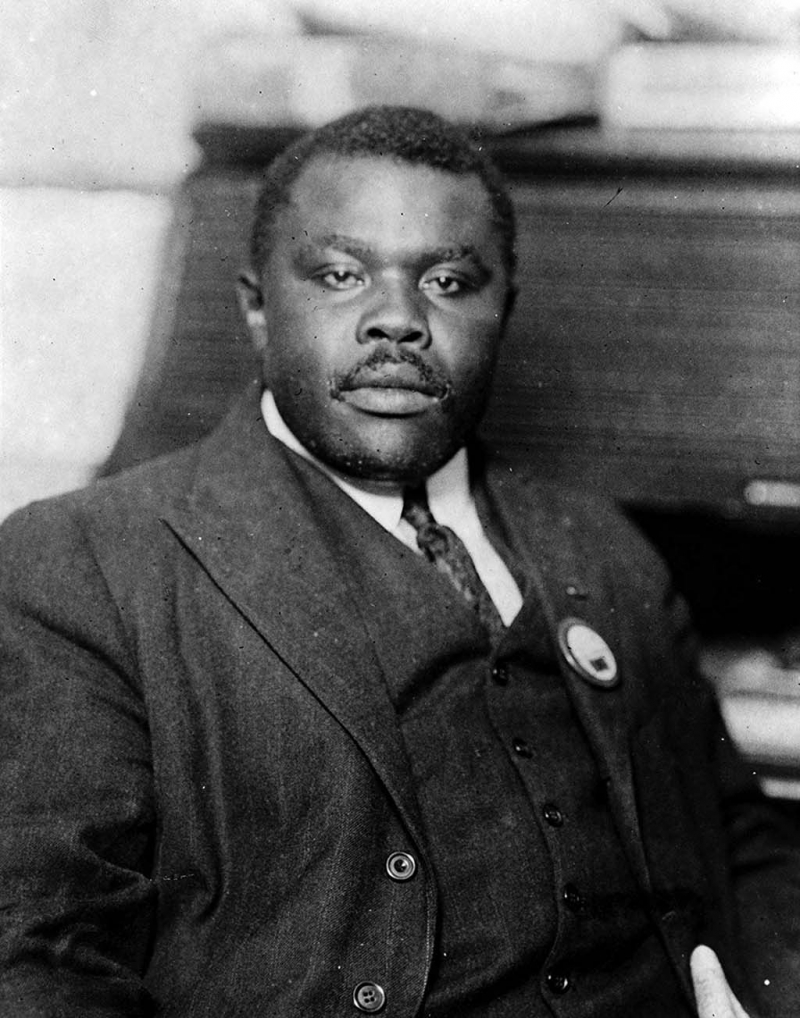
blackpast.org -
Garvey founded the Universal Negro Improvement Association and African Communities League, abbreviated as UNIA, in July 1914. Using the motto of "One Aim. One God. One Destiny", it declared its dedication to establishing black brotherhood, promoting a spirit of race pride, reclaiming the fallen, and assisting in the civilization of Africa's backward tribes. It began with simply a few members. Many Jamaicans were outraged by the group's significant usage of the name "Negro," which was frequently used as an insult; Garvey, on the other hand, embraced the phrase in reference to black people of African origin.
Garvey took over as president and traveling commissioner of UNIA, which was initially housed in his hotel room on Orange Street in Kingston. It marketed itself as a humanitarian club, working to aid the destitute, and eventually established a vocational training institution based after Washington's Tuskegee Institute in Alabama. Garvey wrote to Washington and received a brief but positive response; Washington died soon afterward. UNIA formally declared its support for the British Empire, King George V, and the British struggle in the ongoing First World War. Brigadier General L. S. Blackden spoke to the meeting in April 1915 on the war effort; Garvey supported Blackden's appeals for more Jamaicans to sign up to fight for the Empire on the Western Front. The group also hosted musical and literary events, as well as an elocution tournament in February 1915, where Garvey won first place.
Garvey received financial support from a number of notable supporters, including the Mayor of Kingston and Jamaica's Governor, William Manning. Garvey had bypassed the brown middle classes, which included mulattos, quadroons, and octoroons, by appealing straight to Jamaica's white elite.
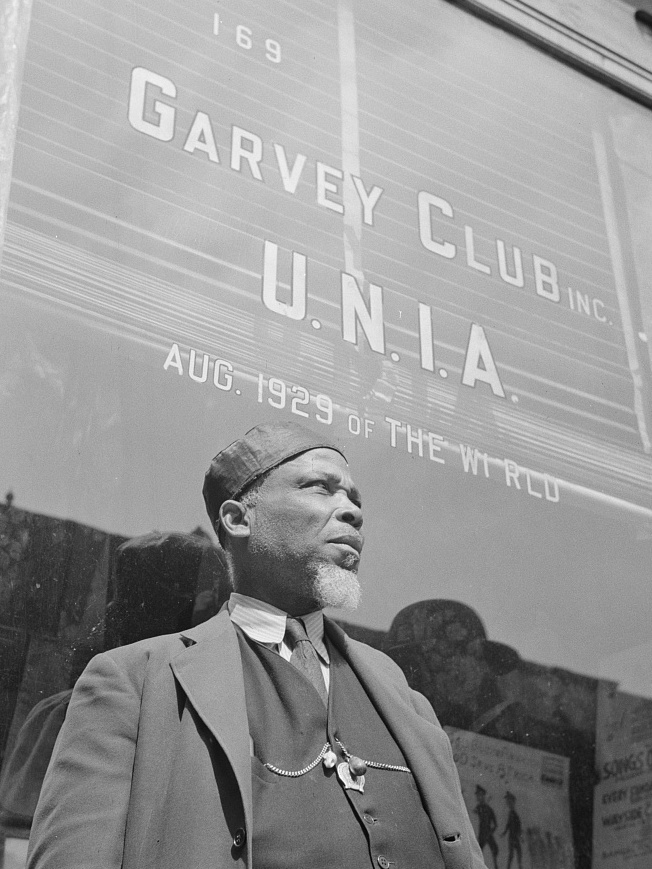
en.wikipedia.org 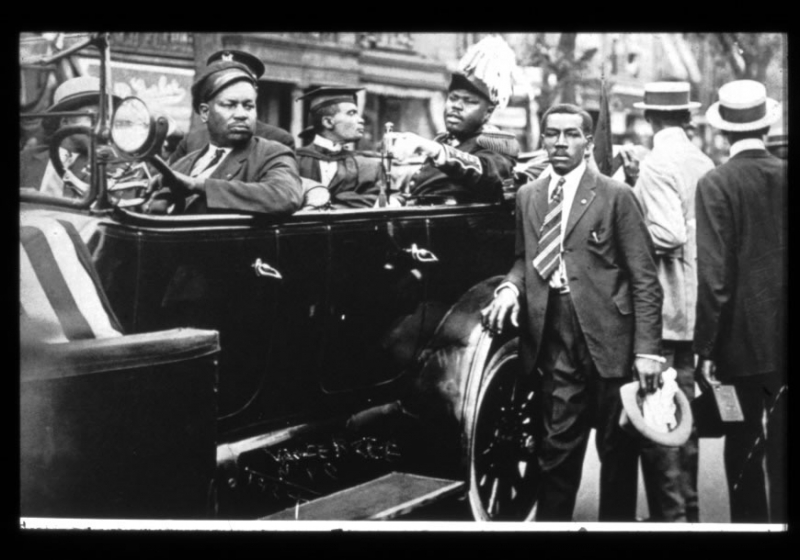
usslave.blogspot.com -
UNIA also began selling shares for a new company, the Black Star Line, from 56 West 135th. The Black Star Line took its name from the White Star Line to challenge the white dominance of the maritime industry. Garvey envisioned a black-owned, black-staffed, and black-consumer shipping and passenger line sailing between Africa and the Americas. He believed the project could be launched by obtaining $2 million from African-American contributors and publicly announcing that any black person who did not purchase stock in the company would be worse than a traitor to the cause of beleaguered Ethiopia.
Garvey founded the shipping company Black Star Line and then set about trying to buy a ship. Many African Americans felt tremendous delight in purchasing firm shares, viewing it as an investment in the future of their community; Garvey also guaranteed that once the company began producing a profit, they would receive considerable financial returns on their investment. To promote this stock, he proceeded to Virginia and subsequently to Chicago in September 1919, joined by seven other UNIA members. He was jailed and punished in Chicago for breaching the Blue Sky Laws, which prohibited the sale of stock in the city without a license.
With increasing amounts of money flowing in, a three-man auditing committee was formed, which discovered that UNIA's funds were improperly recorded and the company's books were not balanced. Following this, there was a breakdown in confidence among the Black Star Line's directors, with Garvey dismissing two of them, Richard E. Warner and Edgar M. Grey, and publicly humiliating them at the following UNIA meeting. People kept buying stock regardless, and by September 1919, the Black Star Line corporation had amassed $50,000 through stock sales. It could thus afford the SS Yarmouth, a thirty-year-old tramp ship. On October 31, the ship was formally launched in a ceremony on the Hudson River. Because the corporation couldn't locate enough experienced black seamen to man the ship, the ship's first chief engineer and chief officer were white.
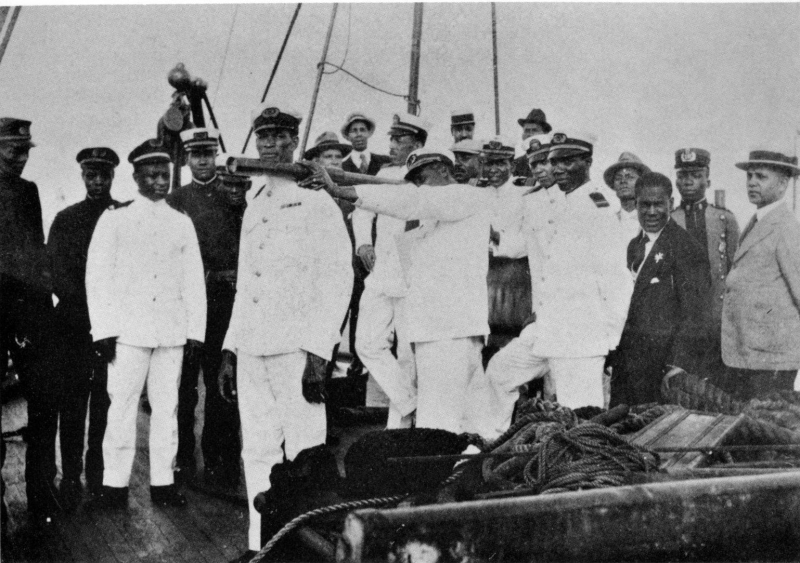
freightwaves.com 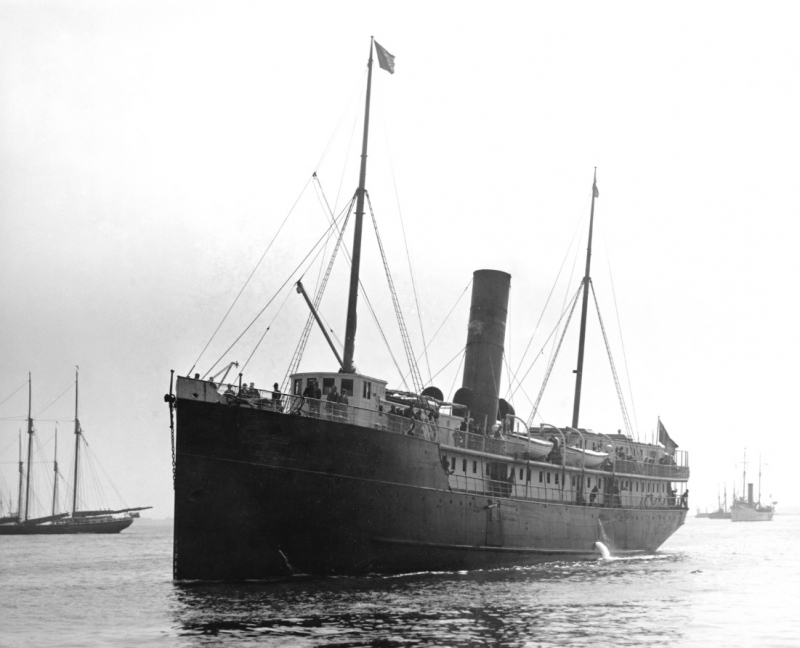
blog.marinersmuseum.org -
One of the interesting facts about Marcus Garvey is that he was arrested and charged with mail fraud in January 1922 for advertising the sale of stocks in a ship, the Orion, that the Black Star Line did not yet own. He was bailed for $2,500. Hoover and the BOI were determined to get a conviction; they had also received complaints from a small number of Black Star Line stockholders, who urged them to look into the situation further. Garvey spoke out against the allegations, but he blamed them on competing for African-American groups rather than the state. In addition to alleging angry former UNIA members, he claimed in a Liberty Hall speech that the NAACP was behind the conspiracy to imprison him. The mainstream press picked up on the claim, portraying Garvey as a scam artist who had duped African-Americans.
Following his arrest, Garvey said that the BSL's operations would be halted. He also planned a trip to the western and southern states. This included a march in Los Angeles, which was intended to entice members of UNIA's California chapter, who had lately splintered off to form its own organization. Garvey met with Edward Young Clarke, the Imperial Wizard pro tempore of the Ku Klux Klan (KKK), in the Klan's Atlanta headquarters in June 1922. The meeting between Garvey and the KKK quickly became public, and it was featured on the front pages of numerous African-American newspapers, provoking great outrage. When the meeting was discovered, African Americans were surprised and angry; Grant noted that it was the most crucial turning point in his popularity.
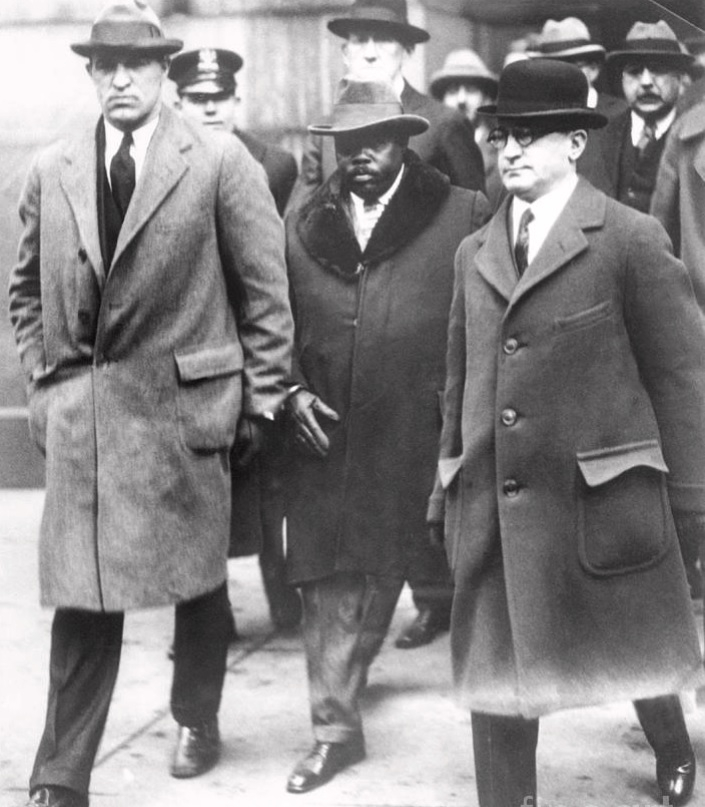
photos.com · In stock 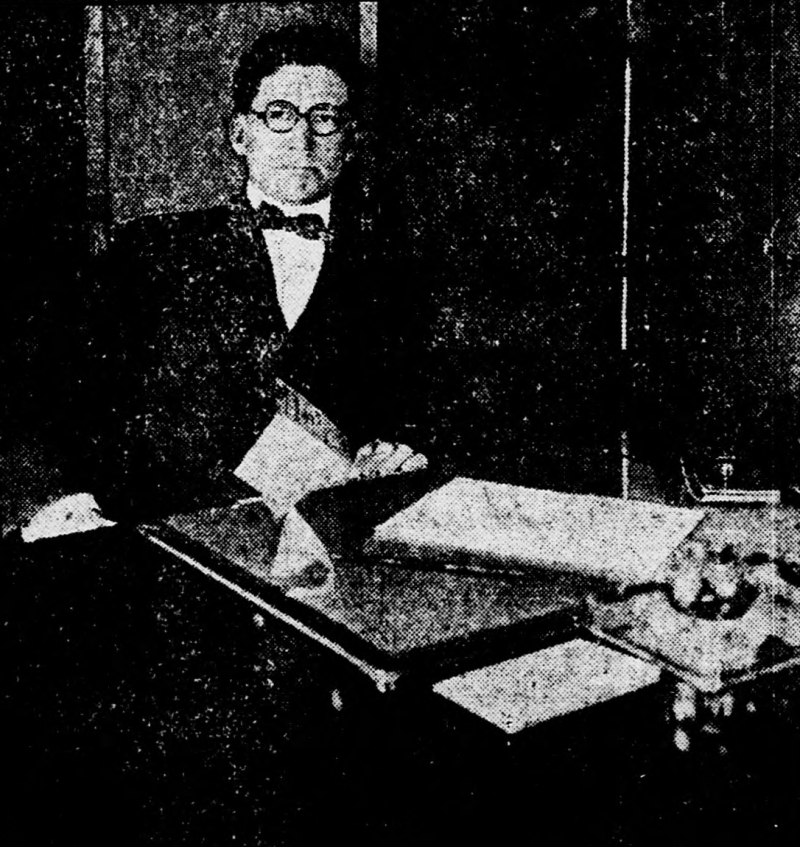
Edward Young Clarke -Photo: en.wikipedia.org -
One of the interesting facts about Marcus Garvey is that he had a great influence on political movements. Kwame Nkrumah, Ghana's first president, and a major Pan-Africanist campaigner recognized Garvey's impact in his book. In his autobiography, Kwame Nkrumah stated that of all the works of literature he had studied, The Philosophy and Opinions of Marcus Garvey or Africa for the Africans influenced him the most.
Ghana's national flag was heavily influenced by the Universal Negro Improvement Association and the African Communities League. Ghana adopted the colors of the UNIA flag when it gained independence. The colors red, black, and green are the same as on the UNIA-ACL flag, while the black star in the center was inspired by Garvey's Black Star Line, a shipping line he started. Nkrumah went on to name Ghana's national shipping line the "Black Star Line", and there is a Black Star Square in Accra, as well as a black star on the Ghanaian flag. The Black Stars are another name for Ghana's national football team.
On June 20, 1965, during a trip to Jamaica, Martin Luther King Jr. and his wife Coretta Scott King paid a visit to Garvey's shrine and laid a wreath. He informed the audience in a speech that Garvey was the first man of color to lead and organize a mass movement. He was the first person to instill a sense of dignity and destiny in millions of African-Americans. And he was the first to make a black man feel important. Ho Chi Minh, the Vietnamese Communist revolutionary, stated that Garvey and Korean nationalists influenced his political outlook during his time in America.
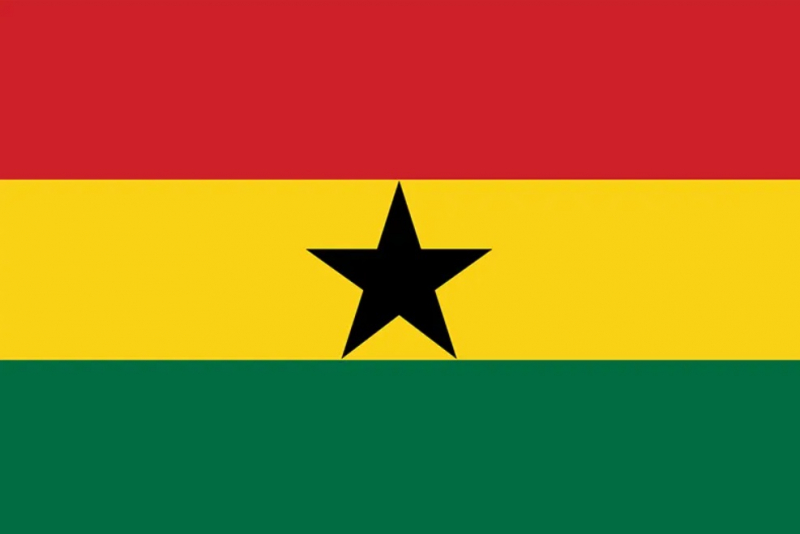
Ghana's national flag -Photo: britannica.com 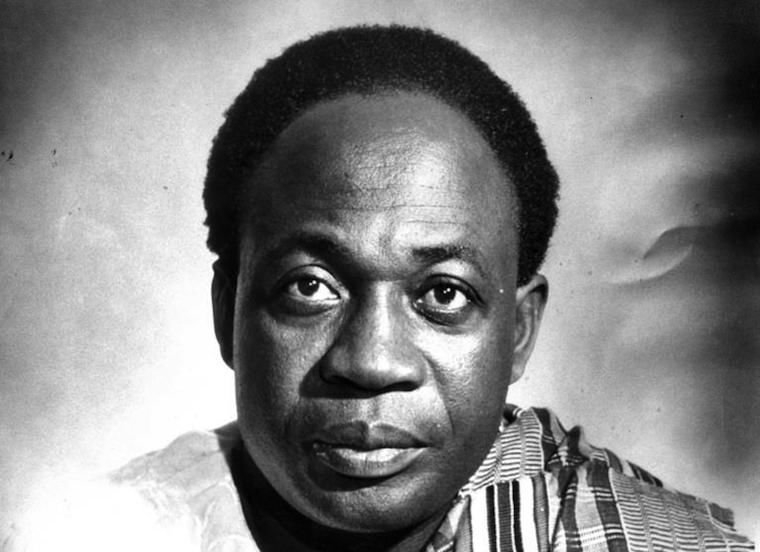
Kwame Nkrumah, Ghana's first president -Photo: blackpast.org







